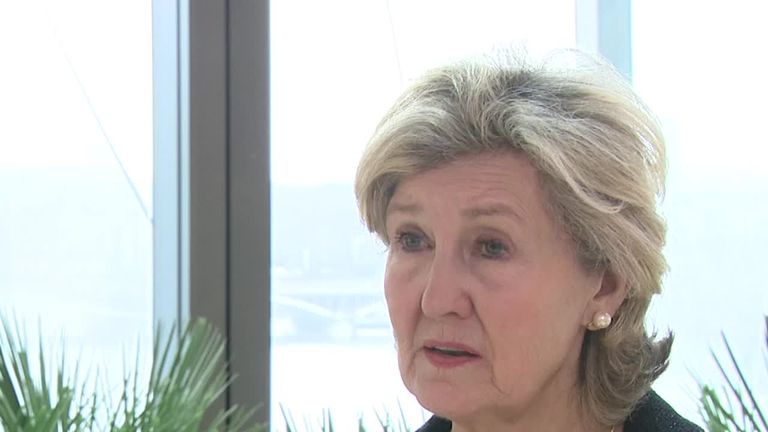Toxic Syria: A poisonous layer cake of rivalries
As Russia's relationship with the West deteriorates, could Syria be the catalyst for the 21st century's Cuban Missile Crisis?
Wednesday 11 April 2018 10:54, UK
Do not underestimate the toxicity of Syria - a poisonous layer cake of hate and local, regional and global rivalries.
The next few days could turn out to be the catalyst, the event which sparks a much bigger fire.
The threat of escalation that results from any action by the United States and its allies is not from the Syrians, or even the Iranians - neither represent a real danger in the truest sense.
It is Russia and its position inside Syria that presents the greatest challenge to any military action or campaign.
Do not be under any illusion.
:: Russia vetoes Syria chemical weapons inquiry
An action that is miscalculated, or goes wrong in the darkness of conflict could trigger something that ignites the whole of the Middle East.
The tub thump of war has been building, not just for a few days but for many, many months and underneath the dangerous percussion of threat and counter threat, lie the deepest and most profound insecurities and grievances, that have been nurtured by the biggest players since the end of the Second World War (or even longer in Russia's case).
The man known in the Kremlin as the "Grey Cardinal", Vladislav Surkov, has just written an essay headlining that Russia's four centuries-long schizophrenic journey to become part of the western family of nations is now over.
The "Great Bear", straddled in a hinterland between east and west, now faces "100 years (200? 300?) of geopolitical solitude" he writes.
In this context you cannot detach the Cold War from what is happening now and that is because the fundamentals of it - Russia's position in the world and its relationship to the West - have never been resolved.
When the neoconservatives in the US wrote of the "End of History" and the untrammelled ascendancy of liberal democracy they did so with an arrogant lack of respect for the past.
History has no end as long as there are men and women to wield pens to write it.
It also belied a total ignorance of the position of the other side and a wilfulness not to listen to what was being said by Moscow.
Russia did not lose the Cold War.
In its history, Russian leaders decided to end the sprawling sclerotic Soviet Empire, but it was not defeated.
It was humiliating, yes, but it did not end with a Treaty of Versailles, or reparations.
Contrast how the Nazis viewed German history and how the country sees itself now.
Now ask the same question about Soviet Russia and Putin's Russia and you get the point.
Russia's history did not become a different history because it was not vanquished - Russia still owns its own narrative in which a great Russian power is the central star.
This now brings me back to Syria.
You have a face-off between a superpower (where some of its key advisers are still intoxicated by the neoconservative Kool-Aid) and another that views itself as such - certainly great enough to sit and eat and drink at the top table.
Realistically, the Trump administration's safe options are extremely limited (but realism may not be part of the plan).
Anything more than a quick strike risks conflagration.
There are too many Russian soldiers in Syria and Russian interests there are too great.
Couple that with a Russia that feels its destiny as the "Third Rome" but is persecuted at the moment and you have all the conditions for something quite ghastly.
We are not there yet but this could be the 21st century's Cuban Missile Crisis and we all know that could have ended very differently.








